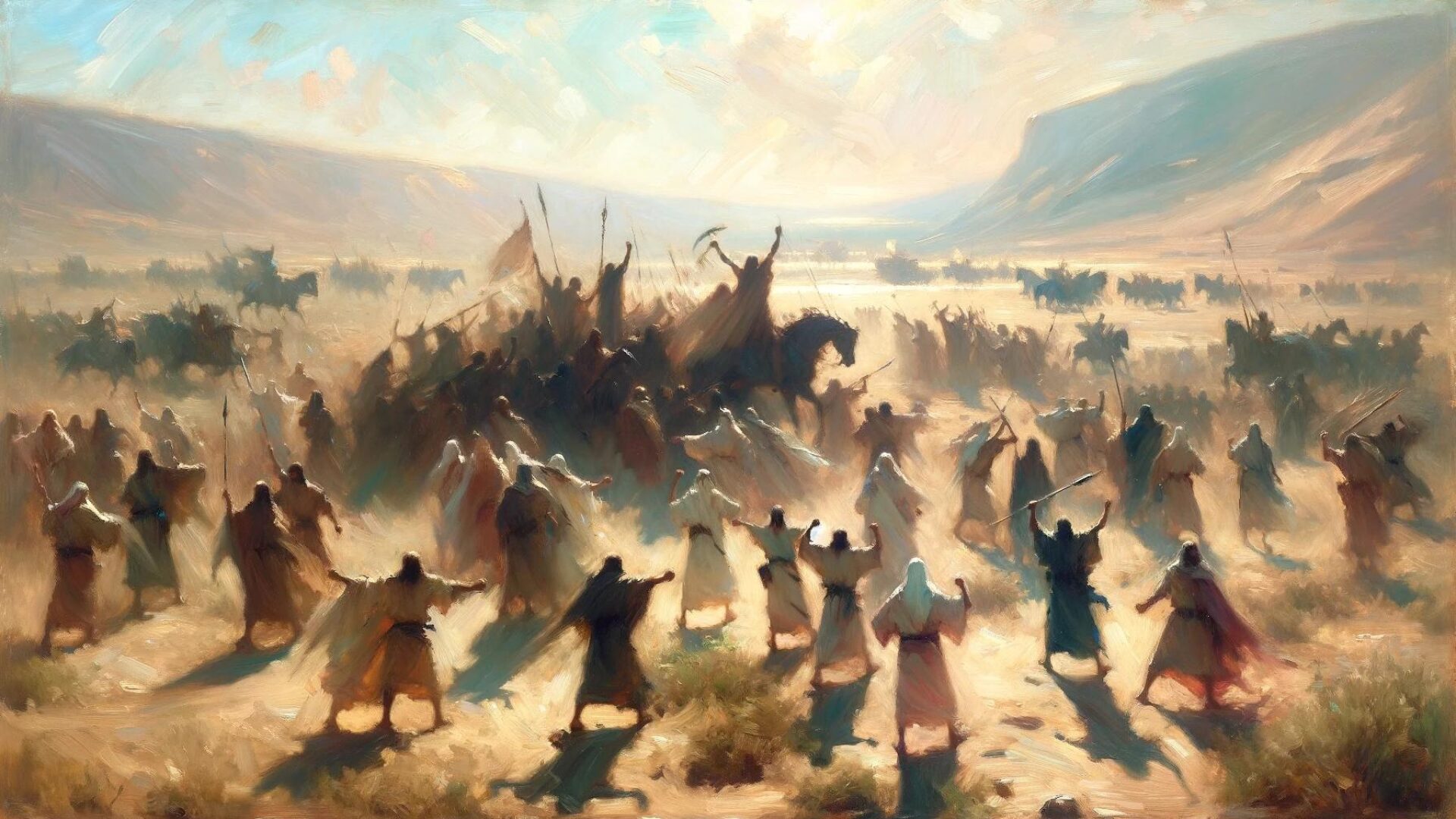Leviticus 9 is a pivotal chapter in the book of Leviticus, offering profound insights into the nature of God and the practices of ancient Israelite worship. By examining this chapter in detail, we can gain a deeper understanding of our own faith journey and the timeless truths embedded in the Judeo-Christian tradition.
In this section, we will provide a comprehensive commentary on Leviticus 9, exploring its exegesis, interpretation, and analysis. We will delve into the historical context and background of this chapter, considering its relevance to contemporary readers and the challenges they face. By examining the key themes and symbolism present in Leviticus 9, we will offer practical insights and spiritual guidance for modern believers.
Understanding the Context and Background of Leviticus 9
To fully comprehend the significance of Leviticus 9, it is important to understand the context and background in which it was written. This chapter is part of the larger book of Leviticus, which focuses on the laws, rituals, and customs of ancient Israel. It follows the book of Exodus, which describes the escape of the Israelites from slavery in Egypt and their journey to the Promised Land.
Leviticus 9 specifically describes the consecration of Aaron and his sons as priests, following their appointment by God in the previous chapter. It details the offering of various sacrifices and the use of incense in the Tabernacle, a portable dwelling constructed by the Israelites to house the Ark of the Covenant and serve as a place of worship.
To gain a deeper understanding of these events, it is helpful to study the historical context of ancient Israel and the role of priests and sacrifices in their religious practices. Additionally, examining the symbolic significance of the Tabernacle and its furnishings can shed light on the spiritual implications of the rituals described in Leviticus 9.
Verse-by-Verse Study Guide for Leviticus 9
Now let’s take a closer look at the chapter itself, breaking it down verse by verse to gain a comprehensive understanding of its content.
| Verse | Summary |
|---|---|
| Verses 1-6 | Moses gives instructions to Aaron and his sons regarding the offering of various sacrifices. |
| Verses 7-21 | Aaron and his sons follow these instructions and perform the designated sacrifices in front of the Tabernacle, with Moses overseeing the proceedings. |
| Verses 22-24 | After successfully completing the sacrifices, Aaron blesses the people of Israel, and Moses and Aaron enter the Tabernacle to receive a blessing from God. |
| Verse 24 | The chapter concludes with the glory of God appearing to the people, who respond with awe and reverence. |
Studying Leviticus 9 in this way allows readers to gain a deeper appreciation for the significance of each verse and the overall message of the chapter.
Key Themes and Symbolism in Leviticus 9
Leviticus 9 is a rich and complex chapter that contains many symbols and themes that are relevant to contemporary believers. Through the study of this chapter, we can gain a deeper understanding of the nature of God and our relationship with Him.
The Significance of Sacrifice
Leviticus 9 describes the sacrificial rituals performed by Aaron and his sons to consecrate the Tabernacle. These rituals were central to Israelite worship, and they continue to hold important spiritual significance for Christians today. The sacrificial system was designed to provide a way for sinners to approach God and seek forgiveness. It also served as a foreshadowing of the ultimate sacrifice of Jesus Christ, who offered Himself as a perfect sacrifice for the sins of the world.
The Importance of Obedience
Leviticus 9 emphasizes the importance of obedience to God’s commands. The rituals described in this chapter were performed exactly as God had instructed, demonstrating the Israelites’ reverence for His authority. This obedience was essential for maintaining their relationship with God, and it remains just as important for modern believers. Through faithful obedience, we demonstrate our trust in God and our commitment to His plan for our lives.
The Role of the Priesthood
Leviticus 9 also illustrates the role of the priesthood in mediating between God and His people. The Aaronic priesthood was responsible for performing the rituals and sacrifices that enabled the Israelites to approach God. This role was later fulfilled by Jesus Christ, who acts as our High Priest and mediates between us and God. Through His sacrifice, we are able to approach God directly and receive forgiveness for our sins.
The Power of God’s Presence
Finally, Leviticus 9 emphasizes the power and holiness of God’s presence. When Aaron and his sons completed the consecration rituals, God’s glory appeared before the people, consuming the sacrifices and filling the Tabernacle with His presence. This powerful display demonstrated the importance of revering God’s holiness and acknowledging His power. Today, we can still experience the power of God’s presence through prayer, worship, and meditation on His Word.
Leviticus 9 contains many important themes and symbols that are relevant to modern believers. Through the study of this chapter, we can gain a deeper understanding of the nature of God and our relationship with Him. By following the example of faithful obedience and reverence for God’s holiness demonstrated in this chapter, we can grow in our faith and draw closer to Him.
Lessons for Modern Readers from Leviticus 9
Leviticus 9 provides a wealth of spiritual lessons that are as relevant today as they were thousands of years ago. One of the key themes of this chapter is the importance of obedience to God’s commands. Aaron and his sons carefully followed the instructions given to them by Moses, and as a result, they were able to offer a pleasing sacrifice to the Lord. This demonstrates the importance of following God’s commands, even when they may seem difficult or confusing.
Another important lesson from Leviticus 9 is the significance of sacrifice. The burnt offerings and sin offerings presented in this chapter served as a way for the people of Israel to atone for their sins and to demonstrate their devotion to God. While we may no longer offer animal sacrifices today, this passage encourages us to reflect on the sacrifices we can make in our own lives to honor God and to seek forgiveness for our sins.
Finally, Leviticus 9 highlights the importance of repentance. The people of Israel were called to turn away from their sins and to seek forgiveness through the offerings presented in this chapter. This serves as a reminder that we too must regularly examine our own lives, repent of our sins, and seek to grow closer to God.
Conclusion
In summary, Leviticus 9 offers a wealth of spiritual insights and lessons that are just as relevant to modern believers as they were to the ancient Israelites. By taking the time to delve into the commentary, context, themes, and practical applications of this chapter, readers can deepen their understanding of God’s character and his expectations for his people.
It is important to approach Leviticus 9 with an open heart and mind, seeking to learn from the rituals, offerings, and symbols described therein. By doing so, readers can gain a greater appreciation for the richness of biblical literature and the depth of God’s wisdom.
Whether you are a seasoned theologian or a new believer, Leviticus 9 has much to offer in terms of spiritual growth and understanding. Take the time to study this chapter and discover the profound insights it holds.




